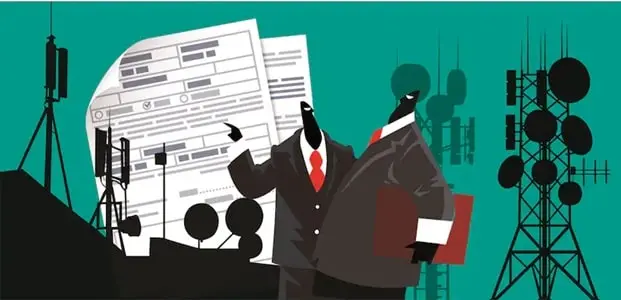The Telecommunications Act of 2023, set to come into effect on June 26, represents a significant overhaul of India’s telecommunications regulatory framework. This legislation aims to modernize the legal landscape to accommodate the rapid technological advancements and evolving consumer needs in the telecom sector. This article delves into the key aspects of the Act, its implications for various stakeholders, and the broader context of its implementation.
Key Provisions of the Telecommunications Act of 2023

The new Act replaces the outdated Indian Telegraph Act of 1885 and the Indian Wireless Telegraphy Act of 1933. It introduces a more comprehensive regulatory regime, encompassing all forms of communication, including internet-based services. Key provisions include:
- Regulation of Digital Services: The Act extends regulatory oversight to over-the-top (OTT) services like WhatsApp, Zoom, and Netflix, which were previously outside the purview of traditional telecom regulation. This ensures a level playing field between telecom operators and digital service providers.
- Spectrum Management: It provides a more flexible and dynamic framework for spectrum allocation, including provisions for spectrum sharing, trading, and leasing. This is expected to enhance the efficiency of spectrum use and foster innovation in the telecom sector.
- Consumer Protection: The Act introduces stringent measures to safeguard consumer interests. These include robust data protection norms, mandatory service quality standards, and enhanced grievance redressal mechanisms.
- National Security: The Act places a strong emphasis on national security. It includes provisions for monitoring and intercepting communications to prevent misuse by anti-national elements, ensuring a balance between security and privacy.
Impact on Telecom Operators
Telecom operators are likely to experience both opportunities and challenges under the new regime. The extended regulatory reach to include OTT players is seen as a move to level the competitive landscape, benefiting traditional telecom companies. However, the stricter consumer protection norms and the need for compliance with enhanced security protocols may increase operational costs.
Implications for Consumers
For consumers, the Act promises better service quality and stronger protections for personal data. The introduction of stricter standards for telecom services is expected to lead to improved network reliability and customer service. Additionally, the inclusion of digital services under the regulatory framework ensures that consumers using these platforms receive the same level of protection as those using traditional telecom services.
National Security Considerations
National security is a cornerstone of the new Act. It grants the government extensive powers to monitor and intercept communications, which, while necessary for security, raises concerns about potential overreach and the impact on privacy. The Act mandates that telecom and digital service providers must cooperate with security agencies, balancing the need for security with the protection of individual rights.
Industry Reactions
The telecom industry has had mixed reactions to the new legislation. While there is support for the modernization of the regulatory framework, there are concerns about the increased compliance burden and the potential for regulatory overreach. Industry bodies have called for clear guidelines and a collaborative approach to implementation to ensure that the new regulations foster growth without stifling innovation.
Conclusion
The Telecommunications Act of 2023 represents a significant shift in India’s approach to telecom regulation. By addressing the needs of a digital age, the Act aims to create a more robust, fair, and secure telecom environment. However, the success of this legislation will depend on its implementation and the ability to balance the diverse interests of stakeholders, from consumers and telecom operators to digital service providers and national security agencies.
The new Act is a critical step towards ensuring that India’s telecom sector remains competitive and resilient in the face of rapid technological change and evolving consumer expectations.

Our dedicated team gathers information from all the reliable sources to make the law accessible and understandable for everyone. We provide the latest legal news stories from across the country, delivered straight to you.
